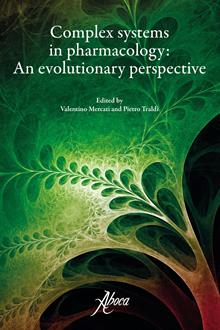
Complex systems in pharmacology. An evolutionary perspective
Valentino Mercati, Pietro Traldi
- Genere: Medicina
- Listino: € 22.00
- Data Uscita: 01/12/2015
- Lingua: Italiano
- EAN: 9788898881109
This book takes its readers on an evolutionary journey to discover the secrets of natural complex systems and how they can be used for human health. At the beginning of time, the universe consisted of simple atomic systems. At the beginning of time, the universe consisted of simple atomic systems. However, increasingly complex molecular systems gradually developed, eventually giving rise, on our planet, to living beings. Since the appearance of life there has been a close relationship between living beings and the environment surrounding them. Since ancient times, humans - whose intelligence enabled the mastery of nature - have “exploited” other living beings, both animals and plants, using them not only as food but also as “medicines” to treat disease. In modern times, the concept of health has become associated with the use of ever less complex drugs, most of which consist of simple molecules. However, experimental data from phytotherapy shows that the biological activity ascribed to the active molecules in a natural extract is often greater than that of the same components in a purified and/or synthetic form. The theory postulated herein differs from the generally accepted hypothesis, as it is based on the premise of biological synergism betwen the different chemicals in the natural substrate. In fact, it is essential to take account of the molecular interactions originating from the high complexity of the natural matrix, which lead to the formation of complexes according to the rules of supramolecular chemistry. The formation of such complexes between the active substance and the other molecules present in the natural environment leads to conformation enabling more effective interactions with the receptor site, as the structures of the natural substances are not free but are “locked” into place, ready for interaction with the human body. Now more than ever there is a need for a global, integrated understanding of living systems. Methods involving the breakdown, isolation and characterisation of each individual molecule, cell and element of a complex system, while useful, have not led to an understanding of the complex interactions between the various parts. And yet the complex molecular systems found in nature have always been the key to human health. It is our task to study them in their natural state, searching for new tools and suitable methods to understand and master them.














